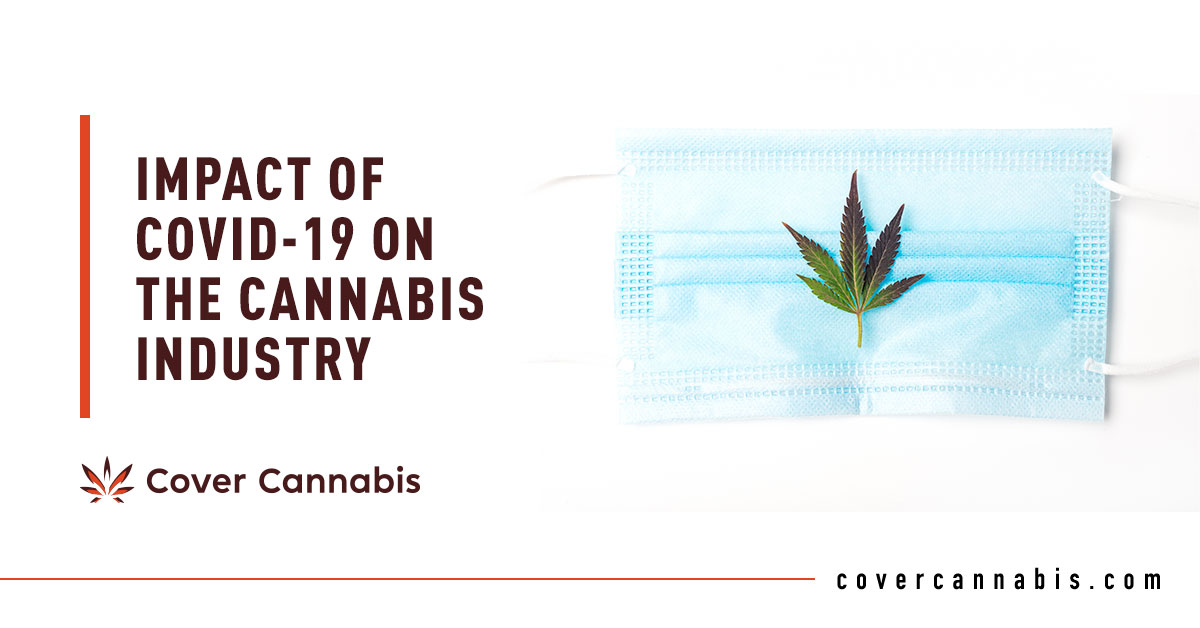


The corona virus outbreak continues to take a toll on businesses around the world, with a second wave now in effect in multiple countries, whatever small recovery was starting to take place is starting to be wiped again.
Cannabis businesses, big and small, are closing shop, laying off staff and drastically restructuring their businesses to cut costs in the hopes of weathering the global pandemic.
On the other hand, this pandemic has shown both positive and negative impacts on the cannabis industry, a good indicator that the cannabis industry can be re-positioned for success even through an economic crash.
Demand for cannabis products have seen an increase during the pandemic. Additionally, in multiple states, cannabis businesses have been considered essential businesses, with a shifting view from the public in how they see cannabis, with many customers starting to see cannabis as a necessity.
There are multiple examples of this increase in demand during the COVID-19 crisis, including:
Just like with other industries, COVID-19 has caused a shift on how consumers are spending, what items they are spending on and when they are spending. Cannabis consumers are looking to cannabis products for many purposes (relaxation, fun and wellness, etc..). Cannabis is also being used to cope up with stress, sleepless nights, anxiety, and other pre-existing health conditions that may be further aggravated by this uncertain time. Customers are looking for comfort, which in turn leads them to cannabis, which leads to increase in demand across the board for cannabis products.
According to Marijuana Business Daily, sales of edibles have surged around coronavirus concerns. Erik Altieri, advises users to switch from smoking flowers to eating edibles or tinctures since people that have a history of smoking may experience or exacerbate the symptoms of the virus (source here).
It is also noted that purchases of edibles such as gummy candies have increased in sales to levels typically seen around 4/20 (April 20) with women and young people driving the sales growth, according Headset, a cannabis market research company.
As a cannabis business owner, take note that edibles are particularly vulnerable to product liability claims. Make sure that product liability is a non-negotiable priority for any cannabis business.
On the onset of the pandemic, many retail businesses and service providers were closed (with limited exceptions), while the regulated cannabis businesses were allowed to continue operating and classified as essential businesses in nearly every state where cannabis is legal, with the notable exception of Massachusetts, from the Marijuana Business Daily.
This classification has led to higher demand for workers in the cannabis industry. More people are being hired for jobs in the cannabis industry than teachers, technology, the medical industry or the public sector. The Cannabis industry has had a faster job growth in 2019 (15% increase year on year) than any U.S. industry, as reported by Leafly’s Cannabis Jobs report.
When Cannabis Businesses were classified as an “essential business”, state and local governments were forced to modify or suspend existing regulations to allow cannabis cultivators, retailers and processors to continue business operations and provide safe access for both medicinal and recreational cannabis users.
Prior to the pandemic, states with regulated cannabis markets had imposed strict regulations on every aspect of the supply chain and even the purchasing activities of the consumer. These regulations were put in place since a strong regulatory framework is required for the cannabis market to thrive, succeed and become sustainable. However, as the industry has grown, some of these rules have become obsolete, ambiguous, inflexible and not commercially feasible.
Due to COVID-19, regulatory changes across the US occurred almost overnight. Through a variety of measures that includes government orders, emergency directives and requests for relief from certain requirements under the “disaster relief” provisions of cannabis regulations, bans on certain activities were lifted and common-sense solutions were placed. All of this leading to improvements in the cannabis industry brough on by the pandemic.
Overall, there is an agreeable point of argument: COVID 19 has definitely changed the cannabis industry landscape. Businesses and political leaders must be agile enough to assess the situation and react decisively. These changes are more likely not to revert to the more restrictive pre-COVID-19 rules and regulations even if things return to “normal” since it is clear that some of the changes that have occurs have had a positive impact on the industry. Consumer behavior, like everything else related to COVID-19, will never be the same.